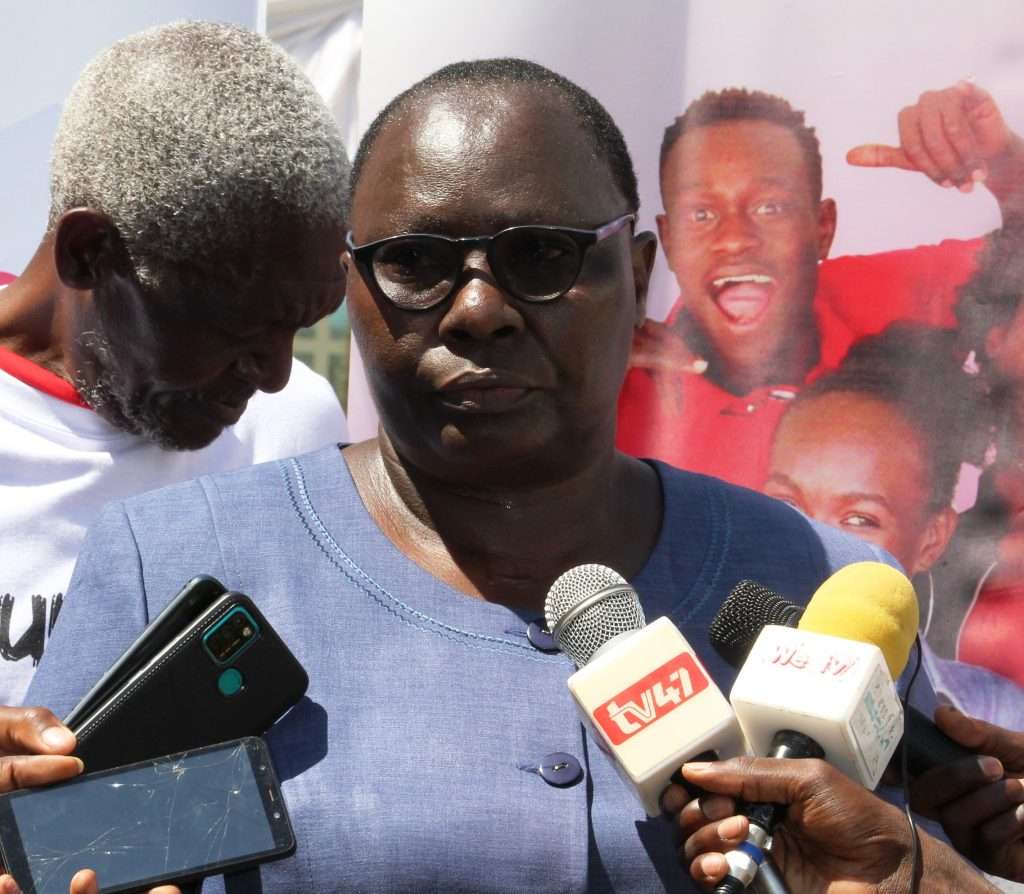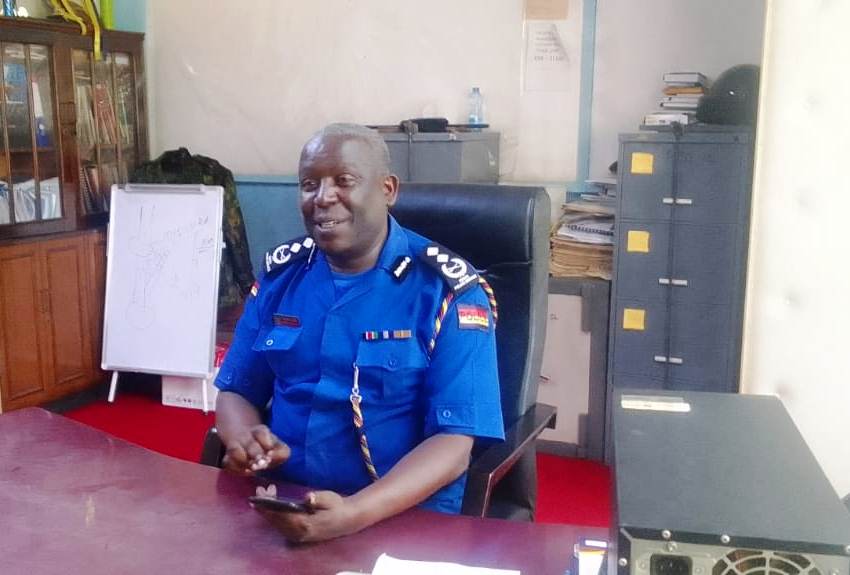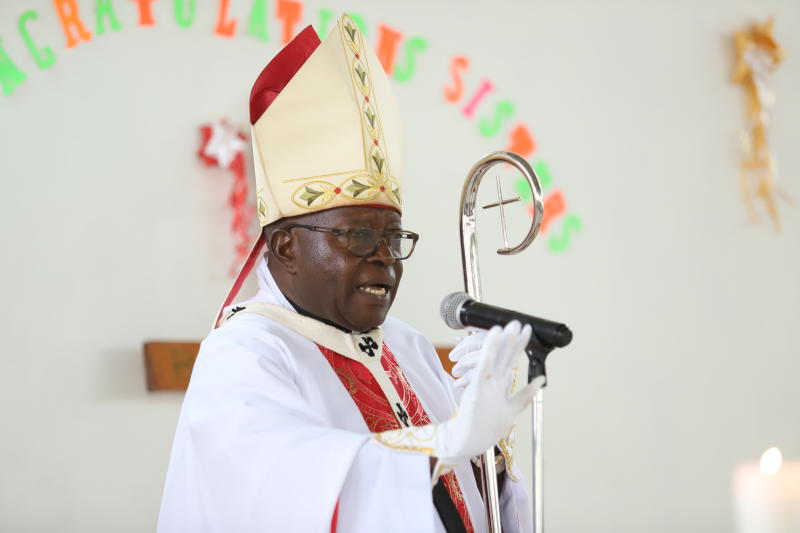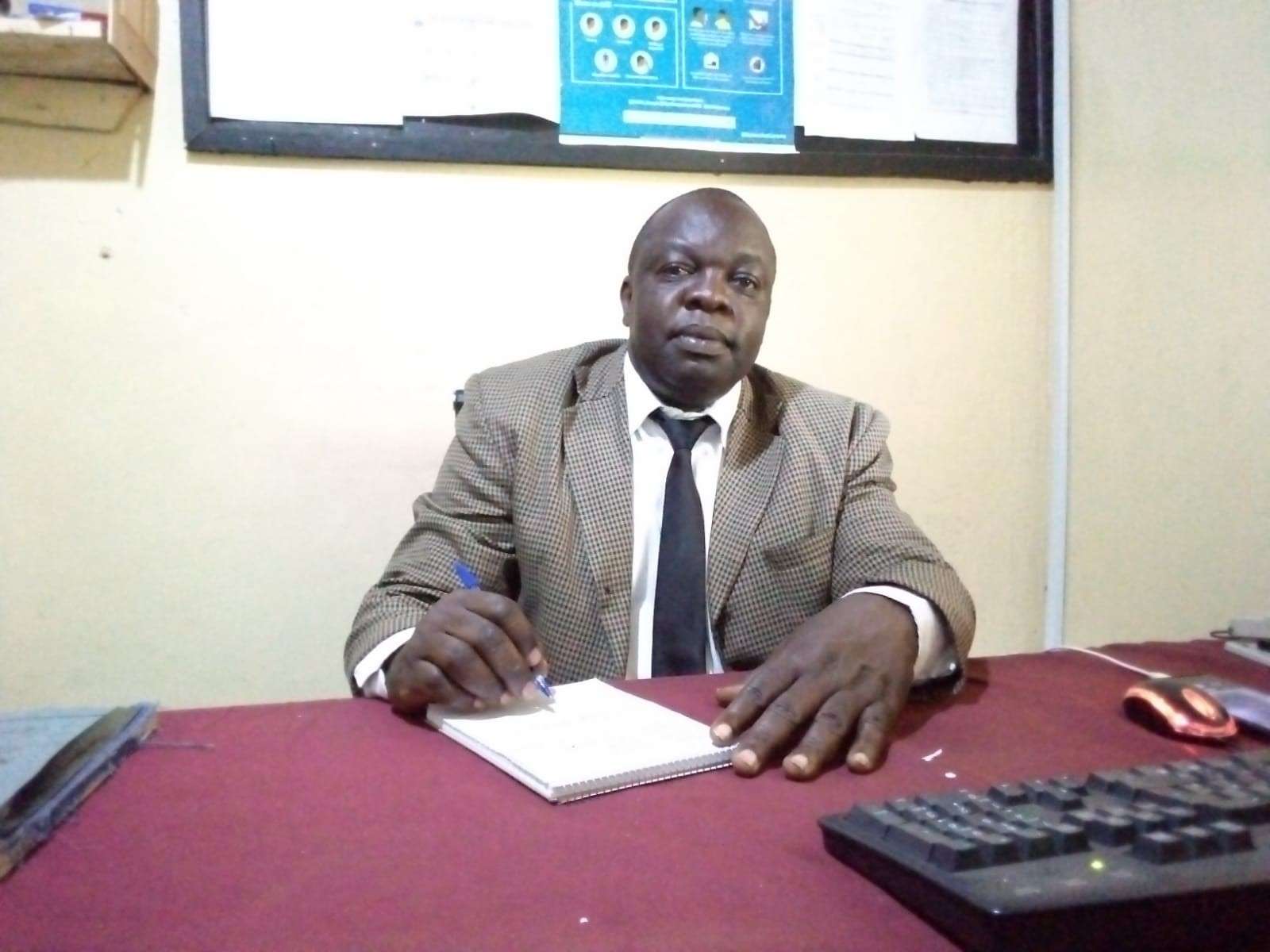Ms Christine Naliaka, the Bungoma County Reproductive Health (RH) Coordinator expressed her worries over the high number of perinatal and maternal deaths in Bungoma County attributing it to weak referral systems among health facilities
Story and Images: By Tony Wafula
A former public health officer during President Moi’s era Mr Richard Walukano has asserted that currently, the health care system in the country has become too narrowly focused on disease management, is un-affordable for many Kenyans and inaccessible to many. He attributes poor primary health care (PHC) to a lack of services and poor infrastructures within the health care systems, adding that weak referral systems within Bungoma health facilities are a major challenge to Primary Health care.
Mr Walukano spoke exclusively to The Weekly Vision in an interview on Saturday from his home in Bungoma County. He said that he pioneered primary health care in the then-western province region to provide health services and bring the services closer to the locals. He argues that the implementation of the PHC in the region was to make sure that residents don’t travel long distances seeking health care services. The former health officer said that the PHC was implemented in western Kenya in 1984 after the country partnered with the Finish government to strengthen the PHC. The former western province covers Bungoma, Vihiga, Busia and Kakamega counties.
“During our time maternal deaths cases were not rampant because we used to frequently train relevant people to play their roles well, unlike today there is no empowerment that is done in the community,” he said. Walukano argues that to address frequent maternal deaths in the country, Kenya should partner with organizations and get support to strengthen the PHC. He says that locals should also be taught about family planning issues
“Before the PHC was implemented, locals were going through ups and downs to access the health services,” he added, arguing that devolving health and the sanitation docket to counties has pulled down and worsened service delivery in many health facilities in Kenya. The high medical bills have also negatively affected and interfered with service delivery.
He said that 12 years later after the PHC was implemented in the region, 63 health centres were built to boost access to primary health care. The health facilities that were constructed in 1996 in the region are currently serving as Sub- County hospitals. For Bungoma County to have a strong Primary health care system, Governor Ken Lusaka should heavily invest in the PHC. Some of the hospitals built in 1996 included Sirisia, Naitiri, Bumula, and Chwele among others.
“I still do follow-ups in our health care systems in Bungoma and even nationally but it is not appealing at all. There is still much that needs to be done so that we have a strong PHC,” he said. He said that in 1988, the 68 health facilities received laboratories that helped with HIV/AIDS testing. To have strong Primary health care in the region, Walukano said that traditional birth attendants, herbalists, circumcisers and Community Health Workers (CHWs) were given refresher courses on how to handle expectant women in the villages.
“During our time maternal deaths cases were not rampant because we used to frequently train relevant people to play their roles well, unlike today there is no empowerment that is done in the community,” he said. Walukano argues that to address frequent maternal deaths in the country, Kenya should partner with organizations and get support to strengthen the PHC. He says that locals should also be taught about family planning issues.
Walukano said that another monster that is eating away the young generation is teenage pregnancies, attributing it to poor parenting. He called on the parents to report perpetrators to the relevant authorities for action. He argues that the social stability of the country is threatened as the Primary healthcare system loses focus on providing fair access to care, their ability to invest in resources wisely and the capacity to meet the needs of the people.
He said that poverty also contributes to decreased access to health care as well since individuals with inadequate resources seek health care only when they fall sick. Mr Walukano states that strengthening primary health care must be adopted to remedy the challenges facing public health care today.
A primary health care system, with its holistic approach, would revolve around preventing disease in addition to treating and curing ailments. He added that when he retired in 1995, he was awarded the Grant Warrior of Kenya in the health sector. “I served in this crucial department for a very long time and I have now remained here to give guidance to those who are there in the ministry of health, I will be happy if I see improvements in the health sector,” he said. He argues that the efforts to strengthen public health systems should extend across the board to all government programs committed to the security and stability of health in Kenya.

Speaking to the press Sunday, Christine Naliaka, the Bungoma County Reproductive Health (RH) Coordinator expressed her worries over the high number of perinatal and maternal deaths in Bungoma County attributing it to weak referral systems among health facilities.
Ms Naliaka revealed that in the year 2021 Bungoma lost 40 mothers to maternal complications who had visited health facilities to deliver. She added that Bungoma is also losing an average of 300 babies quarterly, attributing it to the weak referral systems within Sub-Counties and Bungoma County Referral Hospital (BCRH).
The following are the perinatal deaths that have been recorded in Bungoma County as per the Bungoma County Referral Hospital (BCRH) report that was revealed by Ms Naliaka:July to Sept 2020- 18, Oct to Dec 2020- 6, Jan to Mar-10, April- June 2021-6, July to Sept- 13 and Jan to March 2022- 6.
However, Ms Naliaka noted that currently the Health Technical Working Group (TWG) and Reproductive Maternal, Newborn and Child Health Network (RMNCAH), Stage Media Arts and other organizations in the County are holding meetings to find the appropriate interventions to curb frequent and alarming perinatal and maternal deaths in Bungoma.
“With the high numbers of perinatal and maternal deaths in Bungoma County, health facilities are working closely with Bungoma Reproductive, Maternal, Newborn and Child Health Network and Stage Media Arts to come up with appropriate interventions to address the causes,” Ms Naliaka added.
The following are the perinatal deaths that have been recorded in Bungoma County as per the Bungoma County Referral Hospital (BCRH) report that was revealed by Ms Naliaka:
July to Sept 2020- 18, Oct to Dec 2020- 6, Jan to Mar-10, April- June 2021-6, July to Sept- 13 and Jan to March 2022- 6.
To address frequent deaths in the maternal department, Ms Naliaka said that Community Health Volunteers (CHV’s) have been trained and placed in every village to help in reporting the number of expectant mothers in the village and help them during delivery as they are linked with both public and private health facilities.
The County Reproductive Health coordinator called on the county government through the department of health and sanitation to help improve the referral strategy. “One of the common reasons that are causing deaths in our health facilities is poor referral from Sub- County health facilities to BCRH,” she noted, she also called on pregnant women to visit health facilities for Antenatal Care visits (ANC) which are free at all facilities.
On teenage pregnancy, Ms Naliaka called on parents to embrace holding reproductive health talks to avert the high number of cases arguing that young girls and boys should be in school. Judith Apondi, a CHV from Kanduyi constituency told The Weekly Vision that as CHVs go through a lot of challenges calling on the government to increase their stipends. “We do a lot back in our communities but we are paid poorly, it is a humble time to ask the government to increase the stipends so that it can motivate us,” she said.





